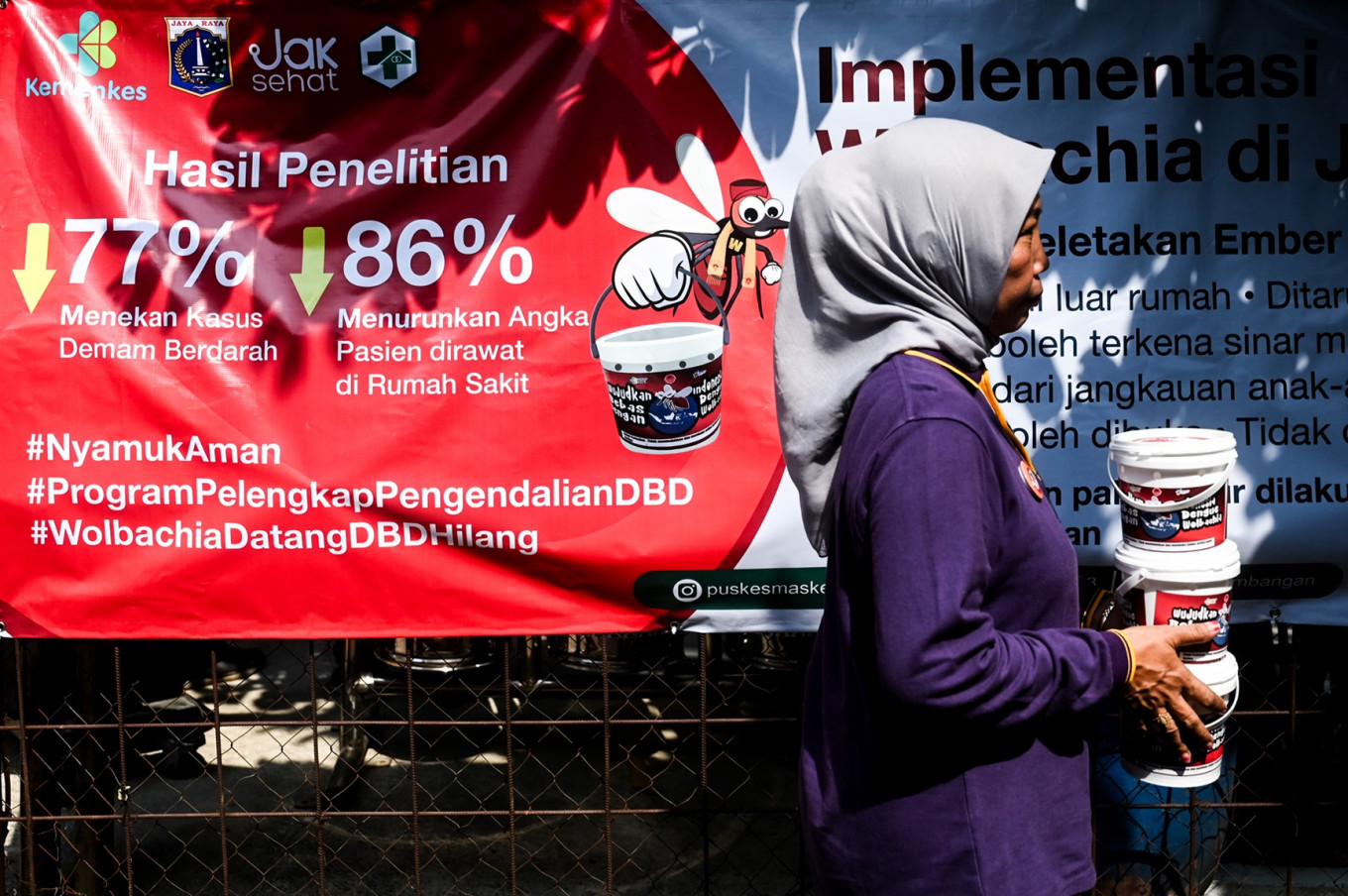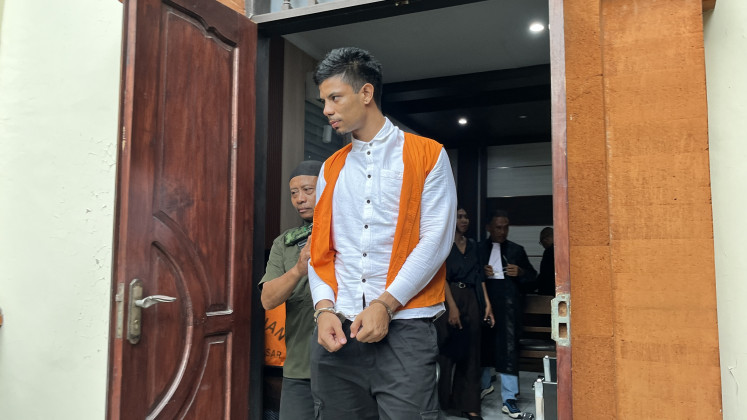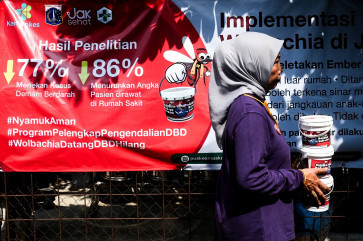Popular Reads
Top Results
Can't find what you're looking for?
View all search resultsPopular Reads
Top Results
Can't find what you're looking for?
View all search resultsGovt mulls over expanding Wolbachia-based dengue control
One of the main challenges hindering the expansion of the program to spread Wolbachia-infected mosquitos in dozens of other cities in Indonesia is limited funding, with the government aiming to work with international partners to overcome the hindrance.
Change text size
Gift Premium Articles
to Anyone
 Tackling disease: A health worker carries buckets filled with mosquito eggs infected with Wolbachia bacteria on Oct. 4, 2024, in Kembangan district, West Jakarta. The Jakarta administration released the Wolbachia-infected mosquito eggs in an effort to control the spread of dengue in the city. (Antara/Rivan Awal Lingga)
Tackling disease: A health worker carries buckets filled with mosquito eggs infected with Wolbachia bacteria on Oct. 4, 2024, in Kembangan district, West Jakarta. The Jakarta administration released the Wolbachia-infected mosquito eggs in an effort to control the spread of dengue in the city. (Antara/Rivan Awal Lingga)
T
he government is considering releasing lab-bred mosquitos carrying the Wolbachia bacteria and their eggs to curb dengue outbreaks in more cities across the country, as the first phase of the public health pilot project in five cities is nearing conclusion.
Indonesia has seen a rise in dengue cases in recent years, with the country having the second highest number of dengue fever cases this year after Brazil, according to the World Health Organization (WHO). The disease, deemed the world’s most critical mosquito-borne viral disease, is transmitted by the Aedes aegypti mosquito that thrives in warm climates.
Since 2023, the Health Ministry has been running a project to help curb dengue by releasing Wolbachia-infected mosquitoes in five municipalities with high prevalence: West Jakarta, Bandung in West Java, Semarang in Central Java, Bontang in East Kalimantan and Kupang in East Nusa Tenggara.
The project had shown “very encouraging” preliminary results, said Murti Utami, the ministry’s acting disease prevention and control director general.
The most significant impact was expected in Semarang where the highest number of Wolbachia-infected mosquitoes was released, she added, though it was too early to draw a conclusion on the project’s efficacy in reducing dengue cases.
With the first five cities expected to deliver final data of their results by next year, the ministry is considering expanding the program to 20 additional cities in 2026, Murti said, although the locations have not yet been finalized.

















